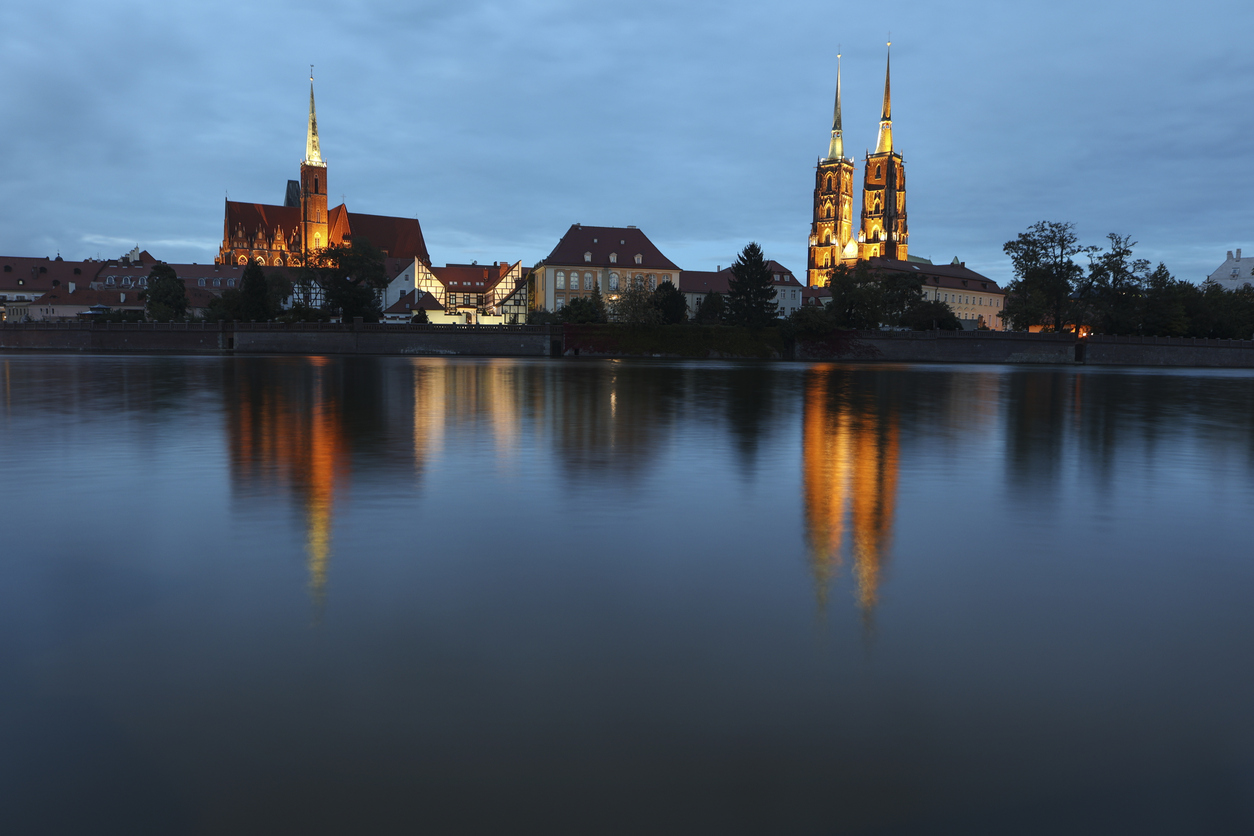Time Period: 2016-2023
Location: Poland, especially Warsaw
Main Actors: Polish Episcopal Conference
Tactics
– Declarations by organizations and institutions
– Public speeches
– Boycotts of social affairs
Poland became less free and democratic after the Law and Justice party (PiS) won its 2015 presidential and legislative elections. PiS’s anti-system, populist platform –for example, emphasizing threats posed by Muslim immigrants to the Polish nation– appealed to older, rural, and religious voters, many of whom lost out from Poland’s economic reforms following the collapse of communism. During its post-2015 tenure, PiS –led by Jarosław Kaczyński– tightened its grip on the executive branch, media, opposition leaders, and academics, among others. New anti-terror laws empowered the PiS government to monitor and detain foreigners without judicial approval, while hate crimes against Muslims soared.
Christianity played a key role in PiS’s rise. For one, its alliance with the Polish Catholic Church –and especially ‘nationalist’ bishops– helped PiS win the 2015 elections. As Poland is a Catholic-majority country, PiS and many of its supporters converge on moral issues like opposition to abortion and gay marriage. Meanwhile, PiS has used Christian rhetoric and symbolism to legitimize its policy agenda, for example opposing Muslim immigration that “pollutes” Poland’s pure, Christian nation. PiS supporters have used the symbol of a Rosary with an added clenched fist at their rallies.
Liberal and conservative Polish bishops have both made statements and taken actions to try and halt PiS’ anti-democratic agenda, an agenda that nationalist bishops have furthered. Many bishops have denounced PiS’ anti-refugee policies, which PiS justifies on populist, xenophobic grounds. For example, in May 2016, Polish Archbishop Stanislaw Gadecki proclaimed that such policies “lack the spirit of Christ.” And in April 2017, the Episcopal Conference released a document denouncing PiS’ Christian nationalism as incompatible with “loving thy [refugee] neighbors.” In both of these examples, bishops employed biblical language to challenge the convictions of PiS and its Catholic constituents. In January 2018, the Episcopal Conference publicly celebrated both Migrants Day and the Day of Judaism, presenting a document offering church support to migrants.
Bishops have also been vocal in opposing PiS’ more overtly anti-democratic efforts. For example, in June 2017, Archbishop Gadecki and others publicly warned PiS not to undermine Polish judges’ autonomy. These warnings ostensibly led President Andrzej Duda to veto two bills that would have done just that. In May 2018, during a mass celebrating Poland’s Saint Stanislaw, the bishops denounced President Duda’s proposal to change the constitution –in unclear and vague ways— as “an offense to God.” There they affirmed the democratic, pluralistic nature of their ideal Polish state. In July 2018, arguably because of pressure from Polish bishops, President Duda vetoed a law that would raise the threshold for parties competing in European Parliament elections.
Finally, Polish bishops have resisted PiS’ attempts to utilize Christian imagery and holy days for anti-democratic ends. For example, in November 2017, the Episcopal Conference refused to celebrate Mass during Poland’s Independence Day rallies. In their justification, Episcopate leaders drew attention to PiS’ Islamophobia and “unChristian nationalism.” And in November 2018, the bishops refused to grant PiS protesters permission to hold Mass in front of the Parliament building.
The bishops’ activism eventually bore fruit in 2023, when PiS was defeated in Poland’s 2023 parliamentary elections. It is unclear precisely what role religious mobilization played in this process. But in a Catholic-majority country like Poland, it is safe to assume that the actions of Archbishops and other prelates did not go unnoticed.
US democracy organizers can learn much from the model set by Polish bishops. For one, religious actors may be most effective when utilizing religious rhetoric. These efforts may be especially effective when incumbents themselves use religious rhetoric to legitimate their rule. Polish bishops used Catholic arguments to challenge both PiS’ anti-democratic measures as well as PiS’ attempts to define itself as a Catholic party. As some Republican elites work to construct their own version of Christian, anti-democratic nationalism, US religious leaders can endorse democratic norms by drawing on the moral-theological ideas they know best.
A second lesson from the Polish case is that pro-democracy leaders, even if they are an ecclesial minority, can still succeed in countering dominant narratives. Although Polish nationalist bishops gained unprecedented access to power through their alliance with PiS, liberal and conservative bishops succeeded in drawing attention to PiS’ anti-democratic measures. In the US, liberal Catholic bishops are also a minority, owing to the limited number of appointments made by Pope Francis. However, they can still be effective in countering those bishops whose focus on the politics of abortion renders them more accepting of anti-democratic measures. Importantly, joint statements and actions by pro-democratic liberal and conservative Catholic faith leaders and parishioners would go a long way towards countering rising far-right authoritarianism in the US.
Where to Learn More
– Allen, J. L. (2016). With Pope’s cardinal picks, Bernardin’s ‘seamless garment’ is back. Crux.
– Benson, R. (2023). Poland’s Democratic Resurgence: From Backsliding to Beacon. Center for American Progress.
– Campbell, E. (2020). Poland’s government is leading a Catholic revival. It has minorities and liberals worried. ABC News Australia.
– Csaky, Z. (2021). Capturing Democratic Institutions: Lessons from Hungary and Poland. Freedom House.
– de Oliviera, A.P. (2017). Of popes and politicians. Deutsche Welle.
– Luxmoore, J. (2017). Eastern Europe’s church leaders face growing criticism over refugees. National Catholic Reporter.
– Meyer Resende, M., & Hennig, A. (2021). Polish catholic bishops, nationalism and liberal democracy. Religions, 12(2), 94.
– Pawlak, J. & Ptak, A. (2021). As Poland’s Church embraces politics, Catholics depart. Reuters.
You can access all the caselets from the Pillars of Support Project here.

